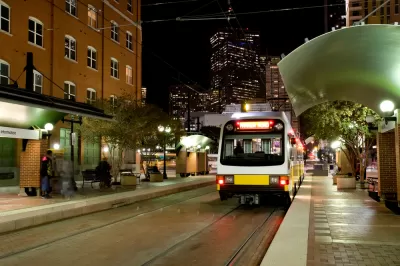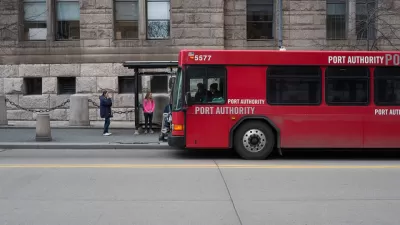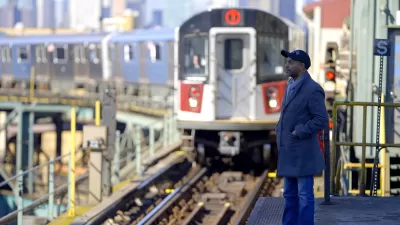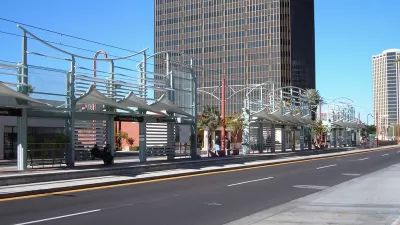2018 could finally reveal how the federal government will approach transit funding in the Trump era. Or the status quo could continue.

Yonah Freemark summarizes the state of transit funding at the beginning of 2018, noting that there is a significant gap between the Trump Administration and Congress on transit funding, but the threat that local and state agencies counting on federal support for planned, or even constructed, transit projects could end up regretting their assumptions.
According to Freemark, "Congress has largely ignored the White House’s efforts to cut funding for transit projects," and "transit agencies are acting as if grants will continue far into the future; they’re continuing to submit their projects for federal review."
That doesn't mean the status quo won't change in the future. "Indeed, Trump has yet to even submit a nominee to head the Federal Transit Administration," reports FReemark. "The FTA’s capital investment report suggested that [pdf] 'Future investments in new transit projects would be funded by the localities that use and benefit from these localized projects,' despite the government’s continued support for road projects, whose use is overwhelmingly local."
The article casts a wide net in taking the temperature of the politics of transit funding at the federal level, noting the projects that received funding in 2017 (from Minneapolis to Indianapolis and Seattle), and speaking directly with transit officials around the country about their plans in 2018. Freemark concludes by offering insight into what to expect from 2018—one key benchmark to watch is the expected release of the Trump Administration's infrastructure plan. Despite the big dollar figure attached to the plan, Freemark is skepticial it will provide the kind of support sought by transit advocates:
What we know about that proposal, however, suggests that it is unlikely to be supportive of the transit projects most cities want. The administration’s rhetoric about the plan suggests that it would emphasize selling or leasing assets to private entities (though the president himself is apparently not confident that public-private partnerships work in the first place), and fund projects that can “support themselves” through user fees, which means that it won’t do much for projects other than toll highways in dense urban areas.
For more coverage on the large issue of local funding versus federal funding for transportation investment, see a recent article by Adie Tomer and Joseph Kane.
FULL STORY: A year into the Trump Presidency, federal transit support limps along

Planetizen Federal Action Tracker
A weekly monitor of how Trump’s orders and actions are impacting planners and planning in America.

San Francisco's School District Spent $105M To Build Affordable Housing for Teachers — And That's Just the Beginning
SFUSD joins a growing list of school districts using their land holdings to address housing affordability challenges faced by their own employees.

The Tiny, Adorable $7,000 Car Turning Japan Onto EVs
The single seat Mibot charges from a regular plug as quickly as an iPad, and is about half the price of an average EV.

Seattle's Plan for Adopting Driverless Cars
Equity, safety, accessibility and affordability are front of mind as the city prepares for robotaxis and other autonomous vehicles.

As Trump Phases Out FEMA, Is It Time to Flee the Floodplains?
With less federal funding available for disaster relief efforts, the need to relocate at-risk communities is more urgent than ever.

With Protected Lanes, 460% More People Commute by Bike
For those needing more ammo, more data proving what we already knew is here.
Urban Design for Planners 1: Software Tools
This six-course series explores essential urban design concepts using open source software and equips planners with the tools they need to participate fully in the urban design process.
Planning for Universal Design
Learn the tools for implementing Universal Design in planning regulations.
Smith Gee Studio
City of Charlotte
City of Camden Redevelopment Agency
City of Astoria
Transportation Research & Education Center (TREC) at Portland State University
US High Speed Rail Association
City of Camden Redevelopment Agency
Municipality of Princeton (NJ)





























